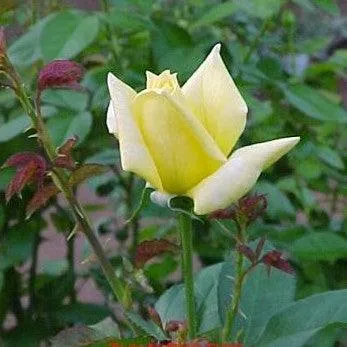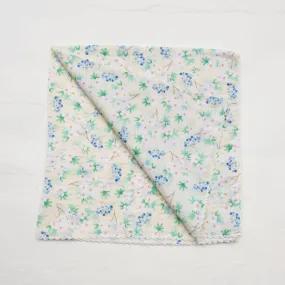-
Common name
- Rose Landora
- Regional name:
- Marathi - Gulab, Bengali - Golap, Hindi - Gulab, Punjabi - Gulab, Kannada - Gulabi, Tamil - Troja, Telugu - Roja
- Category:
- Rose Hybrid Teas
- Family:
- Rosaceae or Apple family
-
Introduction
Rose Landora, scientifically known as Rosa 'Landora', is a stunning, disease-resistant, hybrid tea rose variety that boasts vibrant yellow blooms with a pleasant fragrance. This guide will cover all aspects of planting, growing, and caring for your Rose Landora plants, as well as discussing the benefits they provide.
Plant Information
- Botanical Name: Rosa 'Landora'
- Plant Type: Hybrid tea rose
- Flower Color: Vibrant yellow
- Bloom Time: Late spring to fall
- Fragrance: Mild to strong, depending on the plant
- Height: 3-5 feet
- Width: 2-3 feet
- USDA Hardiness Zones: 6-9
- Soil Type: Well-draining, loamy or sandy soil
- Sun Exposure: Full sun
Plantation
- When to Plant: Plant Rose Landora in early spring, after the risk of frost has passed.
- Choosing a Location: Pick a spot with well-draining soil and at least 6 hours of direct sunlight per day.
- Soil Preparation: Amend the soil with organic matter, such as compost or aged manure, to improve drainage and fertility.
- Spacing: Space plants 2-3 feet apart to ensure proper air circulation and growth.
- Planting: Dig a hole large enough to accommodate the root ball, and plant the rose at the same depth as it was in the container.
Growing
- Watering: Water deeply and consistently, ensuring that the soil remains evenly moist but not waterlogged.
- Fertilizing: Apply a balanced, slow-release fertilizer in early spring, and continue feeding every 4-6 weeks during the growing season.
- Mulching: Apply a 2-3 inch layer of organic mulch around the base of the plant to conserve moisture and suppress weeds.
Care
- Pruning: Prune Rose Landora in late winter or early spring to maintain shape and promote vigorous growth.
- Pest and Disease Control: Inspect plants regularly for signs of pests or diseases, and treat promptly with appropriate organic or chemical controls if needed.
- Deadheading: Remove spent blooms to encourage continuous flowering throughout the season.
Benefits
- Aesthetic Appeal: Rose Landora adds a splash of vibrant color to gardens and landscapes, making it an attractive choice for borders, beds, and mixed plantings.
- Cut Flowers: The long stems and stunning blooms make Rose Landora an excellent option for cut flower arrangements.
- Fragrance: The pleasant fragrance of Rose Landora can be enjoyed in the garden or as part of a cut flower bouquet.
- Disease Resistance: The Rose Landora variety is known for its resistance to common rose diseases, making it a low-maintenance choice for gardeners















